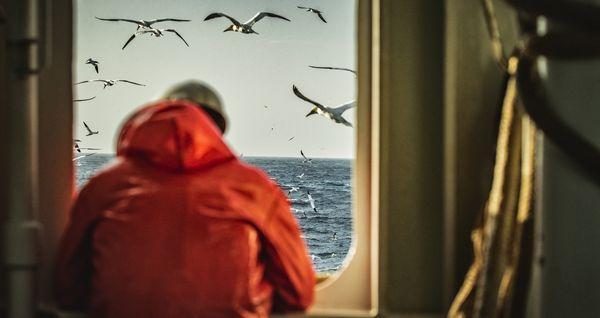
The nature of working at sea means there will be challenging times.
Contact these organisations for help managing mental health and wellbeing:
- SeafarerHelp - provides an international helpline service from the International Seafarers Welfare and Assistance Network (ISWAN).
- Hunterlink - provides counselling services for seafarers in every Australian port - if you are anxious, lonely, or troubled in any way, or even if you just want to speak to someone away from the ship, contact Hunterlink.
- R U OK? – offers a list of crisis intervention services.
- Lifeline – an Australian charity that provides 24-hour crisis support and suicide-prevention services.
Modern slavery support
Help is available for any person experiencing, or at risk of, human trafficking or other forms of modern slavery.
If you have immediate concerns for your safety or the safety of someone else, call 000 (triple zero).
The Australian Federal Police (AFP) can keep you safe, provide advice and refer you to other services and support. This could include accommodation, financial support, counselling and legal and immigration advice.
If you or someone you know could be a victim of human trafficking, please report it by calling 131 237 or use the AFP’s confidential online form.
Safety awareness bulletins
Safety awareness bulletins provide the latest information on maritime incident trends, investigations and safety awareness tips.
Topics covered in previous editions include, mental health and well-being, fatigue and its management, risk assessment, and incident reporting.
- Seacare Authority—Seafarer resource centre
The Seafarers Safety, Rehabilitation and Compensation Authority (Seacare Authority) oversees a national scheme of occupational health and safety (OHS) and workers’ compensation arrangements for defined seafarers.
Visit the Seacare resource centre for a list of resources for seafarers seeking help for themselves or colleagues. - International Seafarers' Welfare and Assistance Network (ISWAN)
ISWAN offers guidance materials and online resources:- Maritime mental health awareness – online mental health events and workshops
- Guide to mentally healthy ships – provides shipping companies and operators with information to develop and implement mental health policies for seafarers.
- Guidance on eliminating shipboard harassment and bullying
The International Chamber of Shipping and the International Transport Workers’ Federation (ITF) have produced guidance for shipping companies, seafarers and seafarers’ organisations to eliminate harassment and bullying at sea. - Happy at sea?
The Seafarers Happiness Index is a survey conducted by the Mission to Seafarers to gauge seafarer satisfaction levels. The survey asks seafarers 10 key questions about various aspects of life and work at sea and provides valuable insights into the challenges and opportunities facing seafarers.
Visit the Seafarers Happiness Index to find out more.
